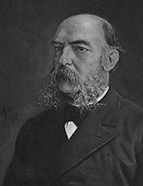

Two arguments partially justify JAR's clear centralist and iberist stance. On one hand, he believed that authors who focused on tracing the origins of cultural manifestations in geopolitical entities often missed the opportunity to accurately identify the true sources of the works they studied. Thus, JAR refuted Almeida Garrett’s claims, who in his Romanceiro considered Rainha e Cativa [Queen and Captive] a Portuguese novel — "Neither the Castilian novels nor any writer mentions the beautiful romance of Rainha e cativa. [...] From the references to Galicia, the nearby moorland, and the "Land of Santa Maria", which, as is well known, refers to the district of Entre-Douro-e-Vouga that is now called the "Terra da Feira", it is clear that both the history and the epic date back to the early days of the monarchy. The fact that it involves "jumping" by sea and "running" by land imparts a distinct 12th-century flavour — supported by arguments showing its transmission in the northern part of the Peninsula. On the other hand, for JAR, it was not the emergence of borders that defined Iberian progress, but rather the evolution of the arts, literature, and ideas that shaped its pace and idiosyncrasy. These principles are reflected in the review of Teófilo Braga's work, História da Litteratura Portugueza [History of Portuguese Literature] : "Obeying spontaneously the superior laws that drive the development of civilisation today, both in Portugal and in Spain, historical studies have received an extraordinary boost; or, better yet, new life. The history of the great Iberian nationality, which personal interests and unfortunate errors have fragmented time after time, has been nurtured within a transcendental concept and with highly philosophical aims. This encompasses not only its complex and varied social and political development — centrally influenced by the dual Eastern cultures of Arabs and Hebrews, which have often been overlooked — but also its intellectual progress in the sciences, arts, and humanities, which has been the focus of highly patient and enlightening studies. With his História da Litteratura Portugueza, the diligent author from the neighbouring kingdom, D. Theophilo Braga, seems to have arrived at a point where he can join this noble and consoling harmony, which provides thinkers and lovers of human progress with some relief from the pains of the present"
